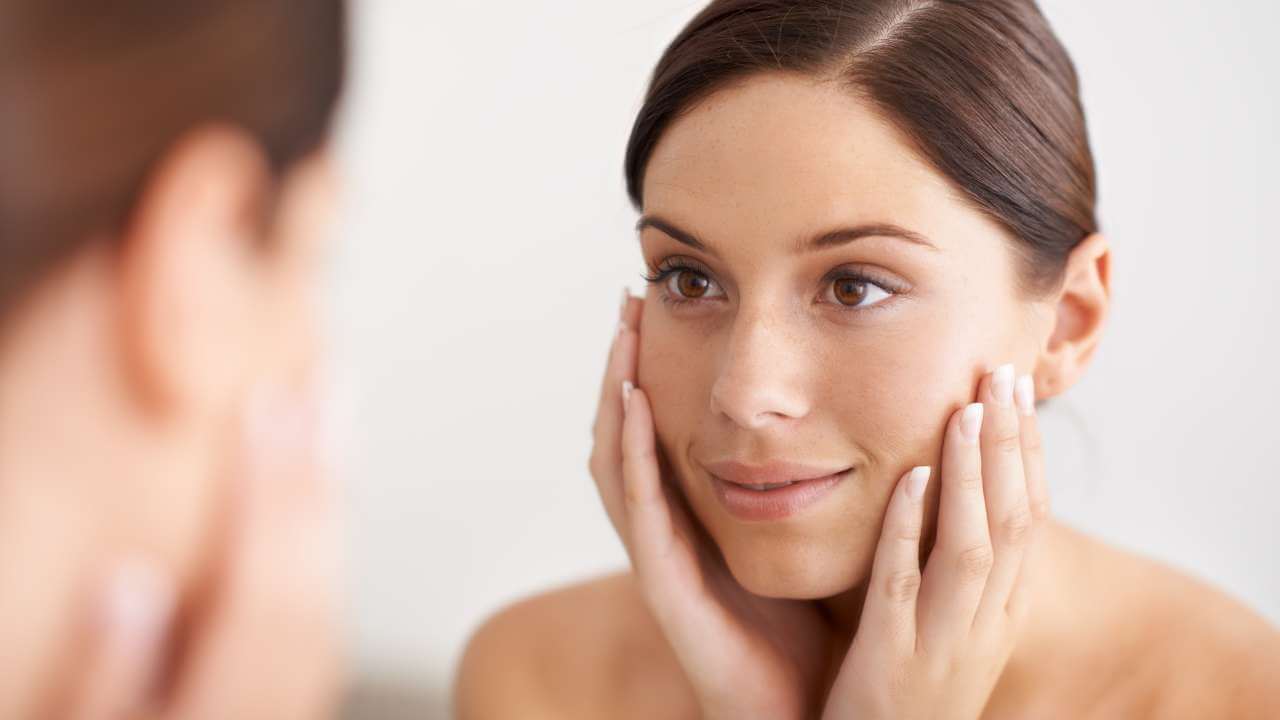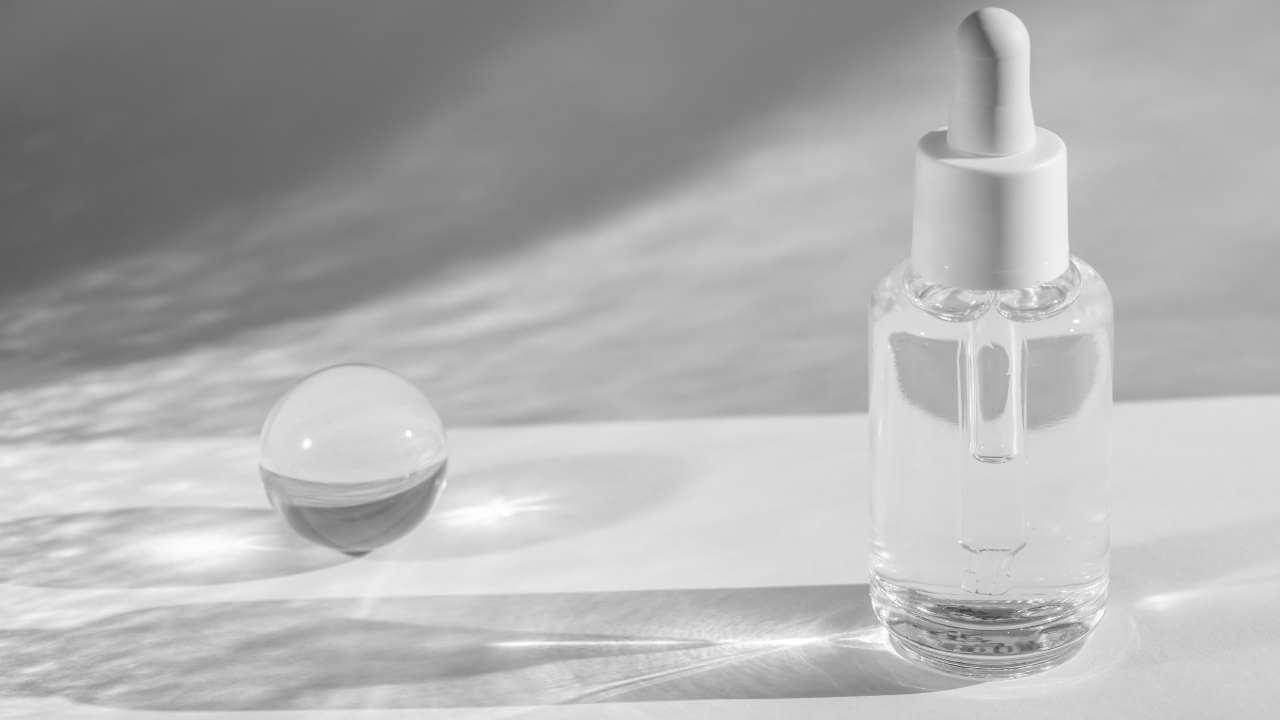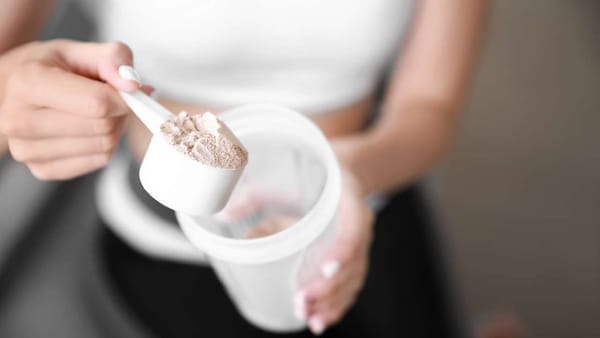Your skin is the foundation of your appearance. When it is healthy and glowing, you look and feel your best. Unfortunately, many people do not take care of their skin properly. This can lead to a variety of problems, including wrinkles, dryness, and sun damage.
If you want to improve the health and appearance of your skin, consider using polypeptides. Polypeptides are a type of amino acid that is found naturally in your cells. They are important for the health and function of your skin, as they help to stimulate collagen production and provide protection from environmental damage.
In this article, we will explore the advantages of polypeptides for your skin and any potential risks involved. Additionally, you'll learn exactly what peptides are! Plus, you'll discover how to incorporate them into your skincare routine.

What are Polypeptides?
Polypeptides are minuscule compounds composed of amino acids, which act as the building blocks for proteins. By applying them to your skin directly, you can effectively signal your cells to increase collagen production - a key element in repairing skin damage and revitalizing your skin tone - all while helping you achieve an even-toned glow.
This process is an excellent example of how small changes can make all the difference when it comes to maintaining healthy skin.
Polypeptides are also important for the structure of many tissues, including the skin. Using polypeptide for skin treatments can reduce expression lines and wrinkles while improving hydration, resulting in smoother and more youthful-looking skin with regular use.
Adding polypeptide-rich products into your skincare routine, like serums and masks, or even just nutrient-dense foods into your diet can provide an effective solution to all your anti-aging needs.
Now let's take a closer look at the incredible benefits of using polypeptides for skin care.

Benefits of Using Polypeptides for Skin Care Routine
1- Helps Prevent Fine Lines and Wrinkles
Aging skin starts to show signs of fine lines and wrinkles, but the main factor for the formation of these lines is the breakdown of our skin's elastin and collagen. That's where polypeptides come in.
Polypeptides help increase collagen and elastin production in our skin, which ultimately provides us with skin firmness and a smoother complexion as it helps prevent wrinkles from forming.(1)
What's more, they are easy to include in your daily routine, occurring naturally in active ingredients like stem cells or proteins that can be included in creams and serums.
2- Stimulates Wound Healing
In the western world, diabetes has become an increasingly common occurrence, with more and more people suffering from chronic wounds related to this condition.
Moreover, over half of all chronic wounds showcase signs indicative of localized bacterial biofilms that are severe enough to cause tissue destruction, impede wound healing and manifest other serious complications.(2)
As evidenced by scientific data, copper peptides can accelerate wound healing.(3) They have proven effective at initiating, controlling, and maintaining healing without the presence of inflammation. As such, copper peptides have become an increasingly popular ingredient in various skin care products.
3- Helps to Strengthen the Skin Barrier
Our skin is constantly under attack from external aggressors such as pollution and harsh UV rays, but these peptides help protect it by strengthening our skin's natural defenses.
They help restore moisture and vitality, plus protect against damage caused by environmental stressors.
Antimicrobial peptides such as LL-37, human b-defensins, and S100A7 have the remarkable ability to enhance the skin barrier.(4)
Not only does this make skin look and feel healthier, but it also helps to prevent further health complications by providing a protective barrier to outside influences.
4- Ensures Long-Lasting Hydration
As we age, our body starts to produce less collagen which can adversely affect our skin’s hydration. This lack of moisture can leave the skin feeling dry that could cause tiny red bumps and fine lines and wrinkles to start appearing on the skin's surface.
Luckily there are ways to help support collagen production and keep your skin looking youthful and glowing!
Peptides are ideal ingredients that help naturally help to produce collagen in the body, thus banishing dehydration from the equation.(5) When peptides are added to your skincare, they work together with other important components such as antioxidants and hyaluronic acid to keep skin looking perfectly hydrated for longer periods.
They also help to prevent transepidermal water loss (TEWL), ensuring that our skin stays hydrated and healthy.(6)
Furthermore, they are generally gentle enough to use on all skin types so you can enjoy their benefits no matter your age or complexion
5- Anti-Inflammatory Properties
Peptides have been making waves in the medical and healthcare industries due to their potent anti-inflammatory properties, allowing them to reduce inflammation in various parts of the body.
Research has recently indicated that peptides obtained from marine species have impressive antioxidant and anti-inflammatory properties. Oyster, in particular, stands out among these organisms as it is jam-packed with protein and other essential nutrients.(7)
They also contain peptides that have been found to inhibit inflammation and act as free radical scavengers.
As a result, these compounds can help promote healthy and smooth skin and also combat signs of aging such as wrinkles, sagging skin, and age spots.
So these are the benefits of polypeptides and how they can benefit our skin in a variety of ways. Whether you’re looking for long-lasting hydration or an anti-aging solution, peptides can help you achieve your desired goals.

Different Types of Peptides for Healthier Skin
With hundreds of peptides available for skin care, the challenge is to identify which ones will provide the best results. Thankfully, only a handful are needed to achieve maximum efficacy and youthful radiance!
1- Carrier Peptides:
Carrier peptides are vital for wound healing and enzymatic progress, as they supply or retain essential trace elements like copper and manganese. These particular peptides support the transport of these two metals into skin cells by forming a tripeptide that binds to copper. In this way, carrier peptides enable recovery from wounds and other ailments at a cellular level.(8)
2- Enzyme Inhibitor Peptides:
Enzyme inhibitor peptides can either directly or indirectly reduce enzymes in the body. Soy oligopeptides, silk fibroin peptides, and rice peptides are efficient on skin cells, inhibiting various types of proteinases while stimulating hyaluronan synthase 2.
Despite their potential success rate, unfortunately, there is currently a lack of conclusive evidence from in vivo studies to demonstrate their efficiency - leaving it unclear just how pertinent this category is for human health.(9)
3- Neurotransmitter Inhibitor Peptides:
Neurotransmitter inhibitors are not as conventional as Enzyme Inhibitors and carrier peptides, yet can be effective in reducing fine lines by obstructing the release of acetylcholine—a neurotransmitter deeply connected to muscle contractions. Incredible enough, these peptides have been designed with a specific purpose: they relax your facial muscles!
These peptides are purported to entirely unwind your facial muscles, providing a more relaxed and youthful appearance.(9)

Side Effects of Polypeptides on Skin
While peptides have certainly gained a reputation as a miraculous remedy, it is important to remember that there are still some potential side effects.
In very rare cases, a person can experience an allergic reaction to peptides. Common signs of a reaction include redness, itching, and swelling.(10)
From creams to serums and supplements, peptide-containing products are generally safe with few adverse side effects. In 2014, a study even showcased no reported side effects among the 23 participants who took oral collagen peptide supplements!(11)

Did We Mention...
Polypeptide for Skin FAQs?
We've all heard the buzz about polypeptides and their potential benefits for skin health, but what's the real story? Are they really as beneficial as everyone says? If so, how can we make sure to get the most out of them?
At this point, you might have more questions than answers. Don't worry – that's why we're here!
We'll answer some of your burning questions about polypeptides and give you some tips on how to use them safely and effectively. So let’s dive in!
How Do You Know if Your Skin Barrier is Damaged?
Your skin's outermost layer, referred to as the epidermal barrier, is your body's first line of defense against external aggressors while also keeping water content balanced. When disrupted or weakened in any way, it can cause symptoms like dryness, itching, and inflammation – a tell-tale sign that something is amiss with this essential protective shell.
Using polypeptides can help to restore your skin barrier and maintain its natural functioning for healthier-looking, hydrated skin.
Can You Use Hyaluronic Acid and Peptides Together?
Peptides and hyaluronic acid are a powerful combination that can deliver long-lasting results while keeping your skin's protective barrier healthy. Peptides help to stimulate collagen production in the lower layers of the skin, giving it a youthful bounce, while hyaluronic acid absorbs water from the formulation to keep it locked in place. Together they make an unbeatable duo!
Are Collagen Peptides Good for Skin?
Collagen peptides are created by breaking down whole collagen proteins into smaller fragments. If ingested, the peptides seem to accumulate in both skin and cartilage, possibly enhancing several ailments affecting the two areas.(11)
So we can say that they are certainly beneficial for skin health! In addition to this, collagen peptides are now being used in topical skin care products to help provide essential nutrients for healthier-looking skin.
Can You Use Peptides with Vitamin C?
Absolutely. By working in harmony, vitamin C and peptides enhance the skin's texture by effectively retaining hydration for a smoother complexion.
Can You Mix Peptides and Retinol?
Although there is probably no harm in pairing peptides and retinol products; if you are experimenting with something new it may be best to introduce one product at a time.
This way, you can more easily identify any potential irritation or allergic reactions that may happen. If both retinol and peptides are used correctly, however, they can work together to create a youthful and radiant complexion.

The Final Mention
Overall, peptides have many benefits for the skin and can potentially help reduce fine lines and wrinkles, stimulate wound healing, and strengthen the skin barrier.
Peptides can be a great addition to any skincare routine as they have anti-inflammatory benefits and long-lasting hydration. While the use of peptides has been shown to provide positive health effects, it is important to assess your individual needs and consider what products are best catered toward you.
For the most effective results, opt for concentrated serums and overnight masks containing peptides - this will give your skin time to absorb the ingredient while you see visible improvement in your skin tone!
If you're looking for a natural, non-invasive way to help improve the appearance of sagging skin, then collagen supplements may be the answer. Read our guide on the best collagen supplements for sagging skin and find out which product is right for you!
If you’ve experienced positive (or negative) results using different types of peptide skincare products, please share your experience with us by commenting below!
✅ 11 Sources
HealthMention only uses sources from authoritative and reliable resources, such as peer-reviewed studies, to strengthen the accuracy of our content.
- Jeong S, Yoon S, Kim S, et al. Anti-Wrinkle Benefits of Peptides Complex Stimulating Skin Basement Membrane Proteins Expression. International Journal of Molecular Sciences. 2019;21(1):73. doi:https://doi.org/10.3390/ijms21010073
- Gomes A, Teixeira C, Ferraz R, Prudêncio C, Gomes P. Wound-Healing Peptides for Treatment of Chronic Diabetic Foot Ulcers and Other Infected Skin Injuries. Molecules. 2017;22(10):1743. doi:https://doi.org/10.3390/molecules22101743
- Carraway J. Using Aldara, copper peptide, and niacinamide for skin care. Aesthetic Surgery Journal. 2004;24(1):83-84. doi:https://doi.org/10.1016/j.asj.2003.10.009
- Nguyen HLT, Trujillo-Paez JV, Umehara Y, et al. Role of Antimicrobial Peptides in Skin Barrier Repair in Individuals with Atopic Dermatitis. International Journal of Molecular Sciences. 2020;21(20):7607. doi:https://doi.org/10.3390/ijms21207607
- Kim DU, Chung HC, Choi J, Sakai Y, Lee BY. Oral Intake of Low-Molecular-Weight Collagen Peptide Improves Hydration, Elasticity, and Wrinkling in Human Skin: A Randomized, Double-Blind, Placebo-Controlled Study. Nutrients. 2018;10(7):826. doi:https://doi.org/10.3390/nu10070826
- Park KY, Kim DH, Jeong MS, Li K, Seo SJ. Changes of Antimicrobial Peptides and Transepidermal Water Loss After Topical Application of Tacrolimus and Ceramide-dominant Emollient in Patients with Atopic Dermatitis. Journal of Korean Medical Science. 2010;25(5):766-771. doi:https://doi.org/10.3346/jkms.2010.25.5.766
- Qian B, Zhao X, Yang Y, Tian C. Antioxidant and anti‐inflammatory peptide fraction from oyster soft tissue by enzymatic hydrolysis. Food Science & Nutrition. 2020;8(7):3947-3956. doi:https://doi.org/10.1002/fsn3.1710
- Schagen S. Topical Peptide Treatments with Effective Anti-Aging Results. Cosmetics. 2017;4(2):16. doi:https://doi.org/10.3390/cosmetics4020016
- Schagen S. Topical Peptide Treatments with Effective Anti-Aging Results. Cosmetics. 2017;4(2):16. doi:https://doi.org/10.3390/cosmetics4020016
- Deptuła M, Wardowska A, Dzierżyńska M, Rodziewicz-Motowidło S, Pikuła M. Antibacterial Peptides in Dermatology–Strategies for Evaluation of Allergic Potential. Molecules. 2018;23(2):414. doi:https://doi.org/10.3390/molecules23020414
- Proksch E, Segger D, Degwert J, Schunck M, Zague V, Oesser S. Oral Supplementation of Specific Collagen Peptides Has Beneficial Effects on Human Skin Physiology: A Double-Blind, Placebo-Controlled Study. Skin Pharmacology and Physiology. 2014;27(1):47-55. doi:https://doi.org/10.1159/000351376









